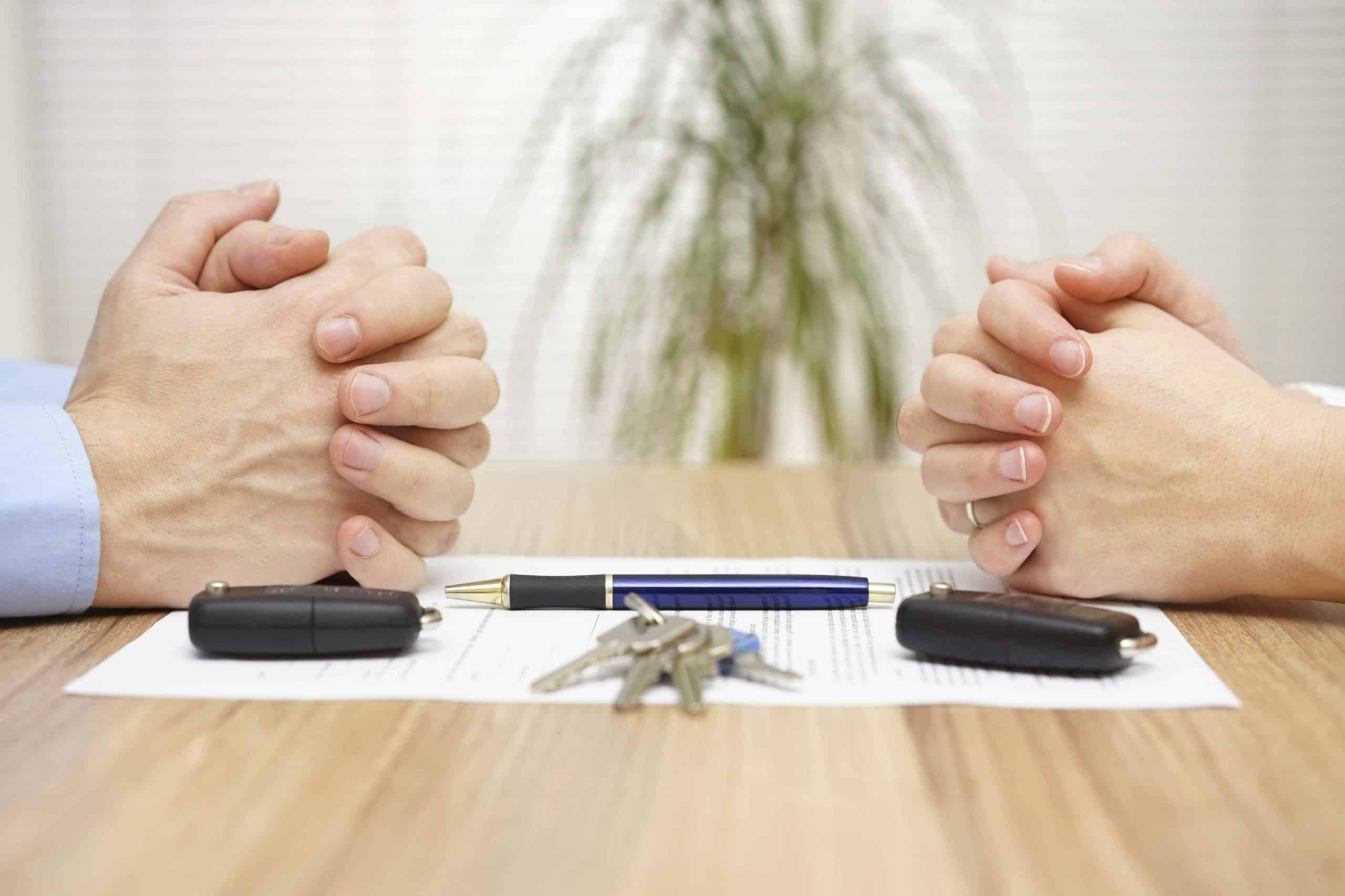
Can you file Bankruptcy on Divorce Settlement?
April 23, 2021There are different types of divorce related debts that are dischargeable in a bankruptcy. At the same time, there are exceptions to this. Plus, there are ways to protect a non-filing spouse during bankruptcy proceedings.
Table of Contents
Chapter 7 and Chapter 13 Bankruptcy Information
Most people file for bankruptcy relief under chapter 7 or chapter 11 of the bankruptcy code, but there is also a chapter 12 of the bankruptcy code. Most people file for bankruptcy relief under chapter 7 or chapter 11. The goal of filing for bankruptcy is to receive a discharge of debt. In a chapter 7 bankruptcy, the person has their unsecured debts eliminated. Unsecured debts include things like credit card debt and medical debt. It also keeps property that is exempt. And a chapter 13 bankruptcy, the individual set up a plan to pay back different types of debt. The repayment plan typically rangers anywhere from 3 to 5 years. Delinquent loans on property can be caught up. This means, that nonexempt property can be retained. There is a conclusion that eliminates any remaining debt in both chapter 7 and chapter 13 bankruptcy. It is important to note that some debts are non-dischargeable. This includes some debts related to divorce.
Obligations Related to Domestic Support
The question of domestic support is a common one when filing bankruptcy. Domestic support is considered alimony and child support, or any monies related to maintenance of the family. The court will take a look at federal law in order to determine what debts related to divorce are dischargeable. It is a case specific determination. It also is dependent on the intent of the parties as to whether or not the obligation is to be a nature of support. Any information that is outlined in the divorce agreement will be ignored.
The Bankruptcy Court will look to federal law to make this determination and will look past any labels that may have been used in the divorce agreement. It is also stated under some sections of the bankruptcy law that some domestic support obligations may not be discharged under a chapter 7 bankruptcy or a chapter 13 bankruptcy. As a matter of fact, most domestic support obligations must be caught up when chapter 13 bankruptcy. PNB Parivar. Payments must be current in order to receive a discharge.
Property Settlement
In a chapter 7 bankruptcy, a domestic support obligation will likely not be discharged. Section 5 indicates that a debt is not dischargeable if it is owed to a child, a former spouse or a spouse in the course of a separation or divorce. Chapter 13 bankruptcy is different from chapter 7 bankruptcy. It does not have the same limitations. Section 5 does not apply to chapter 13. Therefore, Is it a good idea to declare bankruptcy? a property settlement debt maybe discharged like any other debt. The court will look at the following factors to make a determination.
- Does the specific state during the application as property settlement or alimony?
- Is the obligation dependent on contingencies, such as a remarriage.
- Are the payments lump sum or periodic payments.
- Are there minor children who support is necessary?
- Does one of the spouses benefit in directly or directly from the payment.
These are just a few of the differences between chapter 7 bankruptcy and chapter 13 bankruptcy when it comes to divorce or separation.
The Way the Court Looks at Debt
If there is a situation where the ex-wife still lives in the house and the husband has moved out, the husband would then be responsible to make the mortgage payments. The court would interpret this as a domestic support obligation. This domestic support application would not be dischargeable under a chapter 7 bankruptcy or a chapter 13 bankruptcy. If the husband was to pay part of the ex-wife’s credit card payment in the divorce agreement, this would be considered a property division. In this case the husband would not be responsible to make the payment under chapter 13 bankruptcy but would be responsible if he filed a chapter 7 bankruptcy. Often, things are different depending on whether or not you file a chapter 7 bankruptcy or a chapter 13 bankruptcy when it comes to divorce related debt.
Many times, divorce can bring about financial hardship for one or both parties of the divorce. You may find that you need to reestablish credit and move forward with confidence. If this happens to you, you may want to consider contacting an attorney. An attorney will live your financial options are. An attorney also may even be able to negotiate a settlement with some of your creditors without even having to file chapter 7 bankruptcy or chapter 13 bankruptcy. Call an attorney for a free consultation today. You just might be pleasantly surprised that an attorney and can assist with getting back on the road to financial recovery.












